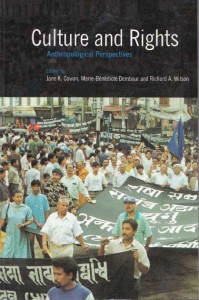 In this chapter we argue that recourse to legalistic strategies and discourses to strategically further the aims of indigenous movements shapes the ways their aspirations are represented. Indigenous identities in Guatemala are effectively being narrated or codified through dominant legal discourses, specifically international human rights law and multiculturalism. This has resulted in the projection of an essentialized, idealized and atemporal indigenous identity, the movement’s leaders often perceiving such essentializing as tactically necessary in order to secure collective rights for indigenous people. Such claims of authenticity have become intrinsic to demands for indigenous legal structures and practices to be given greater political space as part of the wider process of state reform. However, such conceptions ultimately fail to reflect the complexity and power dynamics of social relations in the wake of the armed conflict.
In this chapter we argue that recourse to legalistic strategies and discourses to strategically further the aims of indigenous movements shapes the ways their aspirations are represented. Indigenous identities in Guatemala are effectively being narrated or codified through dominant legal discourses, specifically international human rights law and multiculturalism. This has resulted in the projection of an essentialized, idealized and atemporal indigenous identity, the movement’s leaders often perceiving such essentializing as tactically necessary in order to secure collective rights for indigenous people. Such claims of authenticity have become intrinsic to demands for indigenous legal structures and practices to be given greater political space as part of the wider process of state reform. However, such conceptions ultimately fail to reflect the complexity and power dynamics of social relations in the wake of the armed conflict.
(2001) with Jessica Witchell, “Advancing indigenous claims through the law: Reflections on the Guatemalan Peace Process” in Jane Cowan, Marie Dembour and Richard Wilson (eds.), Culture and Rights, Cambridge University Press, Cambridge and New York: 201-225. ISBN: 0-521-79339-4